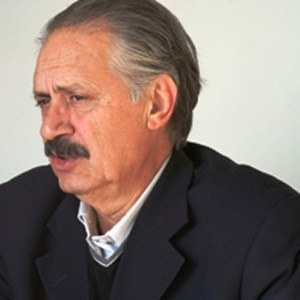Embassy Is No Pacifier
Dr. Ali Bigdeli believes that during the past thirty years, ambassadorship has been granted to some figures in order to appease them

Unverified news in some Iranian newspapers report that a number of Ahmadinejad’s former cabinet may be appointed as ambassadors to foreign countries. Based on this news, former Minister of Health Kamran Lankarani, former Minister of Higher Education Zahedi and former Minister of Interior Sadegh Mahsouli will be appointed as Iran’s ambassadors to China, UAE and United Nations respectively. Former Minister of Energy Parviz Fattah will be also appointed as head of the yet unestablished Nuclear Export Corporation. Iranian Diplomacy has discussed the process of appointing ambassadors to other countries with Dr. Ali Bigdeli, university professor and foreign affairs analyst. Following come Dr. Bigdeli’s comments:
If the news is true, first of all I should express my regret. These officials have no diplomatic background and their fluency in foreign languages is under question. It is not clear how the appointment of one of these ministers as our ambassador to China can preserve our national interests and meet our diplomatic objectives.
Interestingly, our diplomatic approach is not defined in embassies however and ambassadors have no role regarding this approach. There are institutions out of our diplomatic apparatus that define and dictate our policies. In no way do our ambassadors influence the process of navigation, regulation and expansion of foreign relations. One reason is that appointing an official as ambassador, is a way of appeasing him after his term in another office has ended. This has turned into a tradition throughout the past thirty years.
The embassy the official is supposed to serve in provides him with first-class facilities and smooth duties, so that they can recover from the exhaustion of their previous position. The unchanging staffs in the embassy are the ones carrying the real burden.
Meanwhile, the country hosting our ambassador investigates his record and as a diplomatic norm, has to give assent to the appointment. For example, if Sadegh Mahsouli were to be dispatched as our new ambassador to the United Nations, the organization will probe his case. Given Mahsouli’s role in Iran’s presidential election and its aftermath, they may be problems for his service in United Nations.
The diplomatic modus operandi of Iran faces deep challenges and problems. The root cause is that our diplomatic policies are arranged and defined outside the diplomatic apparatus. Hence, our ambassadors have no role in regulating and expanding relations with the host country. Rarely do we hear news about a meeting between our ambassador with senior officials of a country and signing contracts. Such measures are only taken by our minister of foreign affairs while it is not necessary at all for the minister to pay frequent visits to other countries. No foreign minister spends time in travel as their Iranian counterpart. The Iranian minister spends half of his term in flight. Even during the Qajar era Tehran asked its ambassador in say, Washington, to work on a certain case. But it seems that we do not even work at that level nowadays.
If the news is true, first of all I should express my regret. These officials have no diplomatic background and their fluency in foreign languages is under question. It is not clear how the appointment of one of these ministers as our ambassador to China can preserve our national interests and meet our diplomatic objectives.
Interestingly, our diplomatic approach is not defined in embassies however and ambassadors have no role regarding this approach. There are institutions out of our diplomatic apparatus that define and dictate our policies. In no way do our ambassadors influence the process of navigation, regulation and expansion of foreign relations. One reason is that appointing an official as ambassador, is a way of appeasing him after his term in another office has ended. This has turned into a tradition throughout the past thirty years.
The embassy the official is supposed to serve in provides him with first-class facilities and smooth duties, so that they can recover from the exhaustion of their previous position. The unchanging staffs in the embassy are the ones carrying the real burden.
Meanwhile, the country hosting our ambassador investigates his record and as a diplomatic norm, has to give assent to the appointment. For example, if Sadegh Mahsouli were to be dispatched as our new ambassador to the United Nations, the organization will probe his case. Given Mahsouli’s role in Iran’s presidential election and its aftermath, they may be problems for his service in United Nations.
The diplomatic modus operandi of Iran faces deep challenges and problems. The root cause is that our diplomatic policies are arranged and defined outside the diplomatic apparatus. Hence, our ambassadors have no role in regulating and expanding relations with the host country. Rarely do we hear news about a meeting between our ambassador with senior officials of a country and signing contracts. Such measures are only taken by our minister of foreign affairs while it is not necessary at all for the minister to pay frequent visits to other countries. No foreign minister spends time in travel as their Iranian counterpart. The Iranian minister spends half of his term in flight. Even during the Qajar era Tehran asked its ambassador in say, Washington, to work on a certain case. But it seems that we do not even work at that level nowadays.

